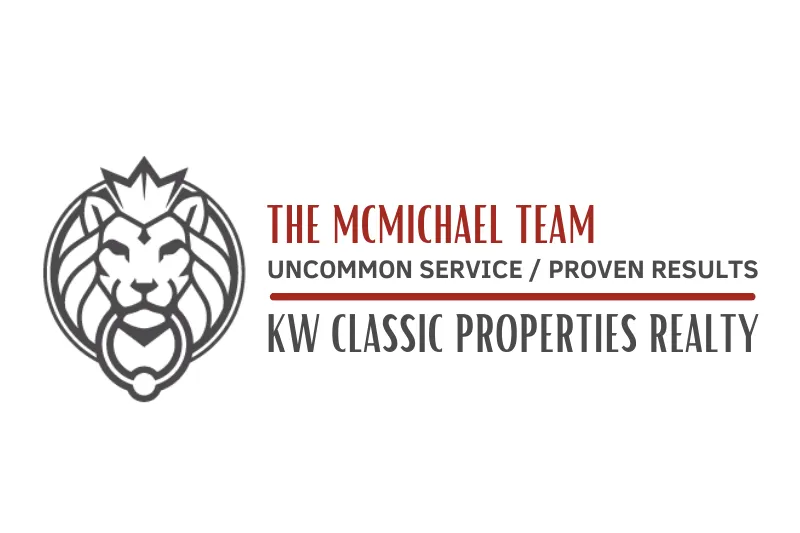Recent Posts

Exploring the process of obtaining a home equity line of credit (HELOC)
“Your money needs to work for you, not lie around you.” - Dave Ramsey
Introduction:
If you own a house you might be familiar, with a Home Equity Line of Credit commonly referred to as HELOC. This financial tool enables homeowners to use the equity they have built in their homes to secure a line of credit. In this article we will delve into the world of HELOCs, explaining what they are, how they function, and why they can be a valuable financial resource.

A HELOC can be used for various purposes, including home improvements, debt consolidation, education expenses, or emergency funds.
Introduction
A HELOC is a type of loan that allows homeowners to borrow money using the equity they have accumulated in their property. Unlike loans where you receive a lump sum upfront, a HELOC functions like a credit card with an established credit limit. You can withdraw funds as needed, pay interest on the amount used, and repay the borrowed amount.
Understanding HELOC
What exactly is a HELOC?
A Home Equity Line of Credit is essentially a revolving line of credit that permits homeowners to access funds by leveraging their home as collateral. The borrowing capacity depends on factors such as, the appraised value of your home and your outstanding mortgage balance.
How does it operate?
HELOCs consist of two phases: the draw period and the repayment period. During the draw period, which typically lasts for 5-10 years you have the flexibility to access funds as and when needed. During this time it is common to make interest-only payments. Once the draw period ends you will enter the repayment period, which usually spans over 10-20 years. During this phase you will start repaying both the amount borrowed and the accrued interest.
The Advantages of a Home Equity Line of Credit (HELOC)
A HELOC offers several benefits that homeowners can take advantage of:
Accessing Home Equity
HELOC provides homeowners with a means to tap into their accumulated home equity for purposes such as home renovations, consolidating debts, or covering educational expenses.
Flexible Borrowing Options
One of the advantages of a HELOC is its flexible nature. You have the freedom to access funds whenever necessary while only paying interest on the outstanding balance. Borrowing from a HELOC is not mandatory.
Lower Interest Rates
Compared to other forms of credit ,like credit cards or personal loans, HELOCs often come with lower interest rates. This makes them an attractive and cost effective option when it comes to borrowing money.
Qualifying for a Home Equity Line of Credit (HELOC)
To be eligible for a HELOC certain criteria need to be met:
Credit Score and History
Lenders take your credit score and credit history into consideration when approving your application for a HELOC. A higher credit score increases your chances of approval and may lead to more favorable terms.
Home Equity Requirements
To be eligible for a Home Equity Line of Credit (HELOC) it's usually necessary to have a certain amount of equity in your home. Lenders typically require that the combined loan-to-value ratio, including the HELOC, does not exceed 80%.
The Application Process
The process of obtaining a HELOC involves these steps:
1. Gathering Required Documents
Collect documents such as proof of income, home appraisal, and mortgage statement.
2. Applying for a HELOC
You can apply directly with a lender or go through a mortgage broker. Be prepared for a credit check during this stage.
3. Approval and Disbursement
Once your application is approved you will receive your credit limit. You can then withdraw funds as needed and utilize them for your chosen purposes.
Responsible HELOC Management
While HELOCs offer financial flexibility, responsible management is crucial:
1. Using HELOC Funds Wisely
Make sure to utilize the funds from your HELOC for purposes that contribute to your well being, such as home improvements or education.
2. Repayment Considerations
Its important to plan how you will repay the borrowed amount, especially when you enter the repayment period.
3. Avoiding Potential Pitfalls
Exercise caution when considering using a HELOC for non-essential expenses or riskier investments.
Comparing HELOC to Options
What Makes HELOC Different from a Home Equity Loan?
It's important to understand the distinctions between a HELOC and a home equity loan. While both provide access to your home's equity, there are differences in how they work. With a home equity loan you receive a lump sum payment upfront whereas with a HELOC you have access to a line of credit that you can draw from as needed.
HELOC vs. Personal Loans
When comparing HELOCs to personal loans, several factors come into play. These include interest rates, repayment terms, and tax implications. While personal loans may offer convenience and simplicity in terms of repayment, HELOCs often come with lower interest rates and potential tax benefits.
Tax Implications
One of the considerations when utilizing a HELOC is its tax deductibility. Understanding whether the interest paid on your HELOC qualifies for tax deductions can have an impact on your financial situation. It's advisable to consult with a tax professional or advisor for guidance on this matter.
Conclusion
In summary, Home Equity Lines of Credit (HELOCs) can serve as valuable financial tools for homeowners. They provide access to home equity, while offering flexibility in borrowing funds when needed. Additionally they often come with lower interest rates compared to other options available. However it is crucial to carefully manage these credit lines in order to maximize their benefits while avoiding any pitfalls.
FAQs
1. What can I use a HELOC for?
A HELOC can be used for various purposes, including home improvements, debt consolidation, education expenses, or emergency funds.
2. Is a HELOC better than a home equity loan?
HELOCs offer more flexibility but may have variable interest rates, while home equity loans provide a lump sum with a fixed interest rate. The choice depends on your financial needs.
3. Are HELOC interest payments tax-deductible?
In many cases, yes. The interest paid on a HELOC may be tax-deductible, but it's essential to consult a tax professional for guidance.
4. Can I lose my home if I can't repay a HELOC?
Yes, defaulting on a HELOC can lead to foreclosure. It's crucial to manage your HELOC responsibly and make timely payments.
5. How do I find the best HELOC for my needs?
To find the right HELOC, compare terms, interest rates, and fees from different lenders. Consider consulting a financial advisor for guidance.
Recent Posts

Exploring the process of obtaining a home equity line of credit (HELOC)
“Your money needs to work for you, not lie around you.” - Dave Ramsey
Introduction:
If you own a house you might be familiar, with a Home Equity Line of Credit commonly referred to as HELOC. This financial tool enables homeowners to use the equity they have built in their homes to secure a line of credit. In this article we will delve into the world of HELOCs, explaining what they are, how they function, and why they can be a valuable financial resource.

A HELOC can be used for various purposes, including home improvements, debt consolidation, education expenses, or emergency funds.
Introduction
A HELOC is a type of loan that allows homeowners to borrow money using the equity they have accumulated in their property. Unlike loans where you receive a lump sum upfront, a HELOC functions like a credit card with an established credit limit. You can withdraw funds as needed, pay interest on the amount used, and repay the borrowed amount.
Understanding HELOC
What exactly is a HELOC?
A Home Equity Line of Credit is essentially a revolving line of credit that permits homeowners to access funds by leveraging their home as collateral. The borrowing capacity depends on factors such as, the appraised value of your home and your outstanding mortgage balance.
How does it operate?
HELOCs consist of two phases: the draw period and the repayment period. During the draw period, which typically lasts for 5-10 years you have the flexibility to access funds as and when needed. During this time it is common to make interest-only payments. Once the draw period ends you will enter the repayment period, which usually spans over 10-20 years. During this phase you will start repaying both the amount borrowed and the accrued interest.
The Advantages of a Home Equity Line of Credit (HELOC)
A HELOC offers several benefits that homeowners can take advantage of:
Accessing Home Equity
HELOC provides homeowners with a means to tap into their accumulated home equity for purposes such as home renovations, consolidating debts, or covering educational expenses.
Flexible Borrowing Options
One of the advantages of a HELOC is its flexible nature. You have the freedom to access funds whenever necessary while only paying interest on the outstanding balance. Borrowing from a HELOC is not mandatory.
Lower Interest Rates
Compared to other forms of credit ,like credit cards or personal loans, HELOCs often come with lower interest rates. This makes them an attractive and cost effective option when it comes to borrowing money.
Qualifying for a Home Equity Line of Credit (HELOC)
To be eligible for a HELOC certain criteria need to be met:
Credit Score and History
Lenders take your credit score and credit history into consideration when approving your application for a HELOC. A higher credit score increases your chances of approval and may lead to more favorable terms.
Home Equity Requirements
To be eligible for a Home Equity Line of Credit (HELOC) it's usually necessary to have a certain amount of equity in your home. Lenders typically require that the combined loan-to-value ratio, including the HELOC, does not exceed 80%.
The Application Process
The process of obtaining a HELOC involves these steps:
1. Gathering Required Documents
Collect documents such as proof of income, home appraisal, and mortgage statement.
2. Applying for a HELOC
You can apply directly with a lender or go through a mortgage broker. Be prepared for a credit check during this stage.
3. Approval and Disbursement
Once your application is approved you will receive your credit limit. You can then withdraw funds as needed and utilize them for your chosen purposes.
Responsible HELOC Management
While HELOCs offer financial flexibility, responsible management is crucial:
1. Using HELOC Funds Wisely
Make sure to utilize the funds from your HELOC for purposes that contribute to your well being, such as home improvements or education.
2. Repayment Considerations
Its important to plan how you will repay the borrowed amount, especially when you enter the repayment period.
3. Avoiding Potential Pitfalls
Exercise caution when considering using a HELOC for non-essential expenses or riskier investments.
Comparing HELOC to Options
What Makes HELOC Different from a Home Equity Loan?
It's important to understand the distinctions between a HELOC and a home equity loan. While both provide access to your home's equity, there are differences in how they work. With a home equity loan you receive a lump sum payment upfront whereas with a HELOC you have access to a line of credit that you can draw from as needed.
HELOC vs. Personal Loans
When comparing HELOCs to personal loans, several factors come into play. These include interest rates, repayment terms, and tax implications. While personal loans may offer convenience and simplicity in terms of repayment, HELOCs often come with lower interest rates and potential tax benefits.
Tax Implications
One of the considerations when utilizing a HELOC is its tax deductibility. Understanding whether the interest paid on your HELOC qualifies for tax deductions can have an impact on your financial situation. It's advisable to consult with a tax professional or advisor for guidance on this matter.
Conclusion
In summary, Home Equity Lines of Credit (HELOCs) can serve as valuable financial tools for homeowners. They provide access to home equity, while offering flexibility in borrowing funds when needed. Additionally they often come with lower interest rates compared to other options available. However it is crucial to carefully manage these credit lines in order to maximize their benefits while avoiding any pitfalls.
FAQs
1. What can I use a HELOC for?
A HELOC can be used for various purposes, including home improvements, debt consolidation, education expenses, or emergency funds.
2. Is a HELOC better than a home equity loan?
HELOCs offer more flexibility but may have variable interest rates, while home equity loans provide a lump sum with a fixed interest rate. The choice depends on your financial needs.
3. Are HELOC interest payments tax-deductible?
In many cases, yes. The interest paid on a HELOC may be tax-deductible, but it's essential to consult a tax professional for guidance.
4. Can I lose my home if I can't repay a HELOC?
Yes, defaulting on a HELOC can lead to foreclosure. It's crucial to manage your HELOC responsibly and make timely payments.
5. How do I find the best HELOC for my needs?
To find the right HELOC, compare terms, interest rates, and fees from different lenders. Consider consulting a financial advisor for guidance.

1349 W. Lane Ave, Suite 1125, Columbus, OH, 43221
(614) 769-7766
(614) 768-6531
www.livingincolumbus.com





